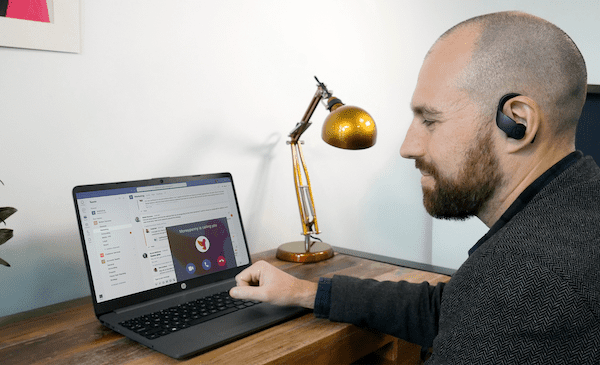Image by 123RF
By Eric Schurke, Moneypenny
The healthcare industry is not immune to the phenomenon of the four-day working week, which is currently growing in popularity with companies across the US. New research we have done suggests the work week is certainly changing. As an outsourced communications company handling calls for 21,000 businesses across the US and the UK, we have seen the number of successfully completed call transfers on Fridays drop from 19% in 2019, to 12% today, as staff are becoming less available. The overall number of calls handled is consistently dropping by 2% on Fridays, creating a difficult situation for healthcare companies to handle as they make long-term plans for critical teams who rely on offices, and schedules for in-person operations.
Our research suggests the working day is also getting shorter as the number of hours actively taking calls has fallen, with just 16% of calls being taken after 4 p.m., representing a 9% decline from 2019 figures. Again, this could be a particular issue for patients needing to contact healthcare companies after 4 p.m., especially if they are in a later time zone, and particularly as we know many will want to phone when they finish work.
We’re definitely seeing the impact of the hybrid working model in the changing availability of company staff across multiple industry sectors, including healthcare. Friday has become a more relaxed day when people are working from home. Similarly, the bulk of communications and meetings are taking place earlier in the day, and we are seeing calls lasting longer, suggesting employees are condensing certain activities.
For healthcare industry employees, hybrid working can mean greater flexibility and autonomy, while for employers it can mean concerns over productivity, as well as empty clinics and offices at points throughout the week. Just 30% of businesses expect their workforce to be fully back on-site before 2023, and the four-day work week, while still not particularly common, is becoming increasingly popular. Some argue that companies are not losing a huge amount of output on a Friday and instead are gaining huge amounts of goodwill from staff, but the difficulty is in how this will be perceived by patients, particularly if it means they experience longer waits for appointments or treatments.

While Fridays may become quieter, conversely there is a very real sense that employees’ working days are becoming longer overall, as work and non-work activities become blurred throughout the week. Employees may work later on some days and more frequently during the weekend, so companies can easily accept changing workplace practices and lower traditional productivity on Fridays, as long as targets are met.
What is crucial for healthcare companies, is to ensure that changing work patterns and a four-day working week do not impact patient services, which they can do by making sure business communications can continue as usual:
- Outsource your communications: there’s no excuse for having a voicemail service running after 4 p.m., or on Fridays, as a replacement for staff. Healthcare businesses are people-oriented, so should have real human beings responding to patients’ calls or messages. An outsourcing company can provide expert call handlers to act as an extension to your team. They’ll get to know your business and can handle inquiries when your staff are unavailable or when there is a surge in demand. These services are incredibly flexible and cost-effective, and can be turned on or off, according to your need.
We all know a health clinic or doctor’s surgery office whose phone line is handled by a fierce gatekeeper who does little to calm a worried or sick patient. It’s therefore worth bearing in mind that outsourced call handlers are experts in talking to people, with superb listening skills, and are highly skilled in dealing with callers who are anxious or afraid.
- Introduce Live Chat: use of Live Chat doubled during the pandemic, as customers discovered and loved the immediacy of getting the information they wanted without having to wait for a phone call to be answered. In an age of text messages and WhatsApp messaging, it’s perhaps natural that customers like the neutrality of communicating through Live Chat, and many of our healthcare clients are already seeing the value of it.
When a patient engages via Live Chat, their Live Chat inquiry is answered within 20 seconds. These handlers can manage three times the number of interactions than they could handle on the phone, so it’s a great addition to the variety of communication channels used by healthcare businesses for their patients. Live Chat can also be used to bolster your in-house team when they are unavailable or busy.
- Adopt new communications technology: earlier this year, we launched an integration with Microsoft Teams that enables incoming calls to be directly transferred via Teams wherever employees are working. The new integration helps manage the disruptions of hybrid working to ensure each call is routed to the right employee the first time, and means we can check Teams status and only transfer calls when the person is free.
- Don’t fight Fridays: don’t assume someone not being available means they’re not working. Fridays could be the day that is becoming more focused on non-traditional workplace activities. While the data suggests that people are less available or active on a Friday, this could be because they are condensing certain activities into that day. This could be networking activity, patient reviews, and reading documentation, or even taking time to think about challenges in the coming week. Time to think should not be overlooked.
About Moneypenny
Moneypenny is a global leader providing phone answering, receptionist teams, live chat and customer contact solutions, and is the most trusted partner to large and small businesses. Moneypenny has an award-winning culture and over 1000 employees across the US and UK. It handles over 20 million calls and chats for 21,000 businesses, and blends awesome people superpowered by leading-edge tech solutions to deliver seamless customer engagement outcomes.
Eric is responsible for overseeing and building the strong growth plans for Moneypenny and VoiceNation in the US. With over 16 years of industry experience, Eric has led his team to provide the highest level of quality answering services to thousands of businesses worldwide. His expertise in workforce optimization and strategic planning has created an innovative and reliable atmosphere.
The Editorial Team at Healthcare Business Today is made up of skilled healthcare writers and experts, led by our managing editor, Daniel Casciato, who has over 25 years of experience in healthcare writing. Since 1998, we have produced compelling and informative content for numerous publications, establishing ourselves as a trusted resource for health and wellness information. We offer readers access to fresh health, medicine, science, and technology developments and the latest in patient news, emphasizing how these developments affect our lives.









